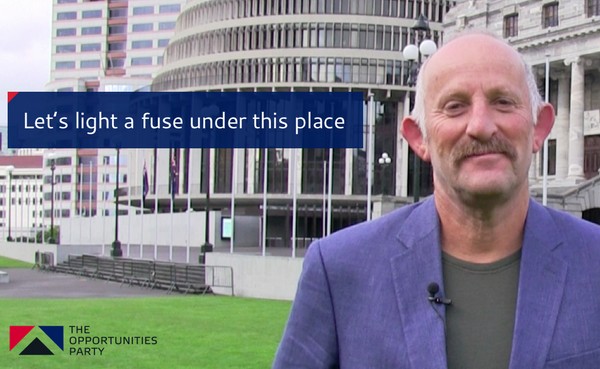TOP’s Dope Policy – Charities As Drug Dealers
 Media Release 19 May 2017
Media Release 19 May 2017
Family First NZ is labelling The Opportunity Party’s policy on marijuana as flawed and harmful, especially the suggestion that non-profit charitable trusts can apply to control retail sales of cannabis.
“You won’t find a drug dealer who is not in the game to make a substantial profit. A liberalised marijuana market will simply be the cue for tobacco ‘big business’ to move in and recover their losses from the clamp-down on cigarette smoking. TOP says it isn’t promoting cannabis use but in effect it will. And the gangs and the underworld will be just as motivated to make money out of it – legal or not. The real question is whether dope will benefit society, our families and our young people. The answer is a resounding no,” says Bob McCoskrie, National Director of Family First NZ.
“While Family First welcomes a cautious approach based on extensive research and appropriate safeguards around medicinal marijuana, any hint of liberalising marijuana laws is the wrong path if we care about public health, public safety, and about our young people, and the government is right to maintain the drug’s illegal status.”
“Drug use is both a criminal and a health issue. There is a false dichotomy that criminal sanctions apparently haven’t worked so we should ditch them all together and we should focus only on education and health initiatives. We should maintain both,” says Mr McCoskrie.
“Ministry of Justice statistics debunk claims by supporters of weakening laws around marijuana that hundreds of people are being locked up for petty drug offences each year. Statistics obtained from the Ministry of Justice by Family First NZ under the Official Information Act show that less than 10 people have been given a prison sentence for cannabis possession offences in each of the last three years, and that even these sentences may be ‘influenced by their previous offending history’.
“Claims have been made that hundreds of minor drug offenders are being locked up for petty drug offences every year, that the system isn’t working, and that by locking them up, they can come out as a ‘meth cook’. That simply isn’t true. It will be difficult to meet somebody who says they’ve been behind bars for smoking a joint, and that’s their only crime,” says Mr McCoskrie.
“In other words, very few are in prison merely for simple drug possession, or even small-level dealing for that matter, according to the stats. International studies have shown that most are imprisoned for aggravated drug crimes, that is, crimes committed while on drugs (murder, armed robbery, theft, assault, child abuse, etc.) or crimes committed in order to obtain drugs. The statistics from the Ministry of Justice appear to confirm that.”
“Erroneous claims that we are wasting time and resources focusing on the criminal aspect fail to understand that there has been a substantial decline in arrests for cannabis use in New Zealand over the past decade, and that police diversion and Alcohol and Other Drug Treatment (AODT) Courts have been increasingly used. But it is the application of the law which enables these orders to be made and enforced in the first place,” says Mr McCoskrie.
“Gareth Morgan’s policy should be given a wide berth – as it is by the major political parties. And NORML’s support is also a ‘red flag’. In 1979, NORML said “We’ll use medical marijuana as red-herring to give marijuana a good name”. In 1996 when California approved medicinal marijuana, NORML said “marijuana has been de facto legalised under guise of medical marijuana”. A US study found that the average ‘patient’ was a 32-year-old white male with a history of drug and alcohol abuse and no history of life threatening illness.”
ENDS






